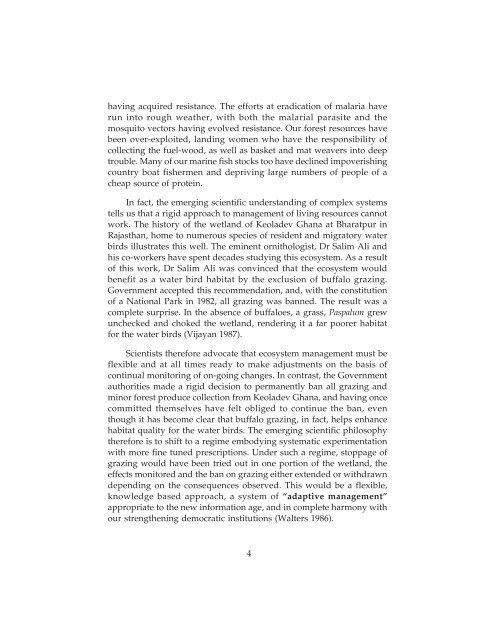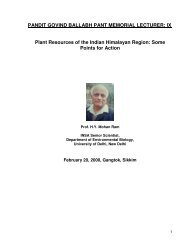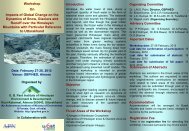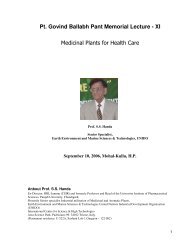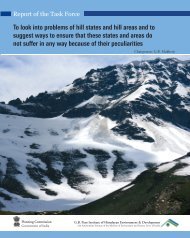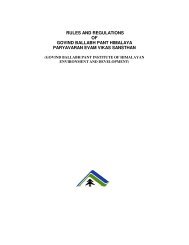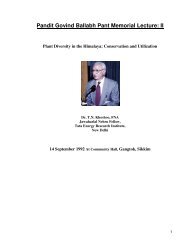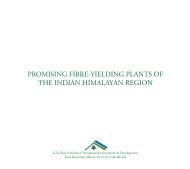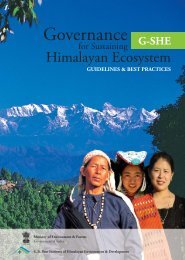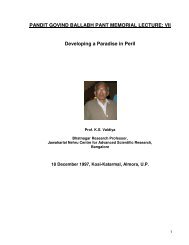Pt. Govind Ballabh Pant Memorial Lecture : XI
Pt. Govind Ballabh Pant Memorial Lecture : XI
Pt. Govind Ballabh Pant Memorial Lecture : XI
- No tags were found...
You also want an ePaper? Increase the reach of your titles
YUMPU automatically turns print PDFs into web optimized ePapers that Google loves.
having acquired resistance. The efforts at eradication of malaria haverun into rough weather, with both the malarial parasite and themosquito vectors having evolved resistance. Our forest resources havebeen over-exploited, landing women who have the responsibility ofcollecting the fuel-wood, as well as basket and mat weavers into deeptrouble. Many of our marine fish stocks too have declined impoverishingcountry boat fishermen and depriving large numbers of people of acheap source of protein.In fact, the emerging scientific understanding of complex systemstells us that a rigid approach to management of living resources cannotwork. The history of the wetland of Keoladev Ghana at Bharatpur inRajasthan, home to numerous species of resident and migratory waterbirds illustrates this well. The eminent ornithologist, Dr Salim Ali andhis co-workers have spent decades studying this ecosystem. As a resultof this work, Dr Salim Ali was convinced that the ecosystem wouldbenefit as a water bird habitat by the exclusion of buffalo grazing.Government accepted this recommendation, and, with the constitutionof a National Park in 1982, all grazing was banned. The result was acomplete surprise. In the absence of buffaloes, a grass, Paspalum grewunchecked and choked the wetland, rendering it a far poorer habitatfor the water birds (Vijayan 1987).Scientists therefore advocate that ecosystem management must beflexible and at all times ready to make adjustments on the basis ofcontinual monitoring of on-going changes. In contrast, the Governmentauthorities made a rigid decision to permanently ban all grazing andminor forest produce collection from Keoladev Ghana, and having oncecommitted themselves have felt obliged to continue the ban, eventhough it has become clear that buffalo grazing, in fact, helps enhancehabitat quality for the water birds. The emerging scientific philosophytherefore is to shift to a regime embodying systematic experimentationwith more fine tuned prescriptions. Under such a regime, stoppage ofgrazing would have been tried out in one portion of the wetland, theeffects monitored and the ban on grazing either extended or withdrawndepending on the consequences observed. This would be a flexible,knowledge based approach, a system of “adaptive management”appropriate to the new information age, and in complete harmony withour strengthening democratic institutions (Walters 1986).4


